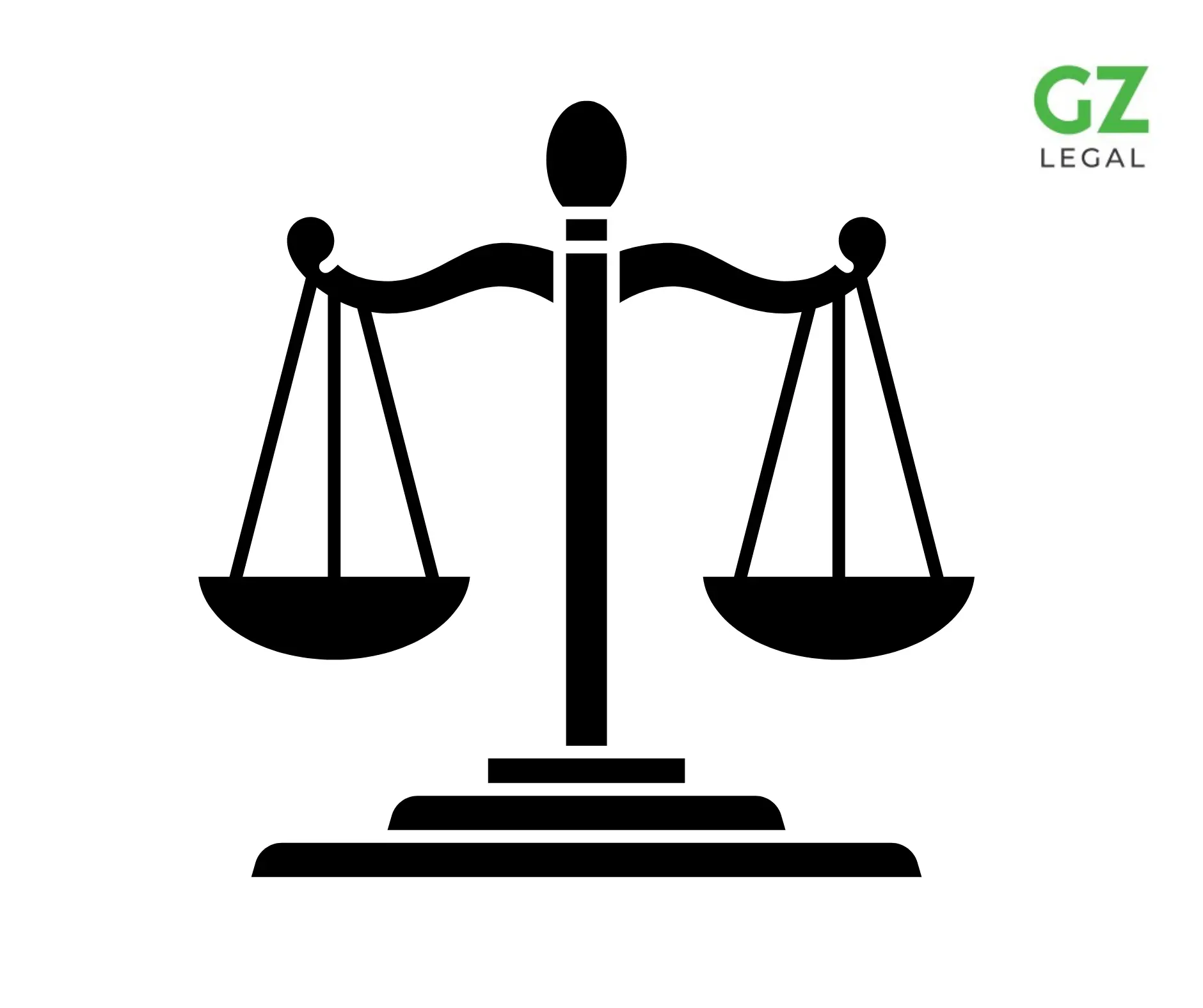Malcolm ZoppiSun Oct 15 2023
What is a Master Service Agreement? A Comprehensive Guide
MSA is a contract that outlines the terms and conditions governing two parties when they anticipate ongoing transactions
What is a Master Service Agreement? A Comprehensive Guide

A master service agreement (MSA) is a vital contract that outlines the terms and conditions governing the relationship between two parties, particularly when they anticipate ongoing transactions or multiple agreements. This comprehensive document defines the scope of responsibilities, rights, and obligations of both parties, essentially providing a framework for govern future transactions and engagements. Establishing a MSA streamlines and simplifies the negotiation process, offering value to entities with multiple agreements involving the same client.
MSAs, also known as framework agreements, hold great appeal for those parties expecting to conduct a high volume of business over extended periods. These agreements deliver a standard set of terms that apply to all future transactions, creating consistency and clarity between the involved parties. The MSA is not industry-specific, so it can be utilised across various sectors, encompassing a range of services.
Key Takeaways

- MSAs define the scope and terms for future engagements between two parties
- Establishing a MSA streamlines the negotiation process and promotes consistency
- Master service agreements can be used across different industries and services
Understanding Master Service Agreement

A master service agreement (MSA) is a fundamental contract that outlines the scope of the relationship between you the telephone company and your service provider or client. This legally-binding document sets the terms and conditions for current and future activities, as well as the responsibilities of both parties. By having an MSA in place, you can streamline your business transactions and simplify the negotiation process for multiple agreements with the same client.
In an MSA, you will typically find a clear description of the services to be provided by one party to the other. This can include specific tasks or activities that will be carried out in accordance with the agreement. The MSA also establishes guidelines for how the services shall be delivered, often referring to a “Statement of Work” (SOW) or service level agreements (SLAs).
It’s important that your MSA clearly outlines the respective responsibilities of you and your service provider/client. By setting expectations from the outset, you can mitigate potential misunderstandings and maintain a smooth working relationship. Moreover, establishing transparent roles and responsibilities can help reduce the risk of disputes or legal issues arising from the contract.
In summary, understanding and crafting an MSA is essential to establish a clear and efficient contractual foundation for your business relationships. By addressing critical aspects long term business relationship such as services, responsibilities, terms, and conditions, an MSA streamlines your business dealings and lays the groundwork for mutual satisfaction and success.
Key Concepts of a Master Service Agreement

Statement of Work
A key component in a Master Service Agreement (MSA) is the Statement of Work (SOW). It provides a detailed outline of the specific services, tasks, and deliverables to be provided by the service provider. The SOW should include information such as the project scope, timeframe, and the expected outcome. By outlining these specifics, the SOW helps ensure that both parties have a clear understanding of their responsibilities and expectations.
Non-Disclosure Agreement
In many cases, sensitive information is shared between the service provider and a third party coverage the customer. A Non-Disclosure Agreement (NDA) is often included in the MSA to protect both parties’ confidential information. This agreement outlines the types of information considered confidential and the steps each party must take to prevent unauthorised disclosure or use of such information.
Intellectual Property Rights
The ownership of Intellectual Property (IP) rights is another important aspect of an MSA. This section clarifies who holds the rights to any intellectual property generated during the course of the agreement. It may cover creations such as patents, copyrights, and trademarks. Clearly defining IP rights in the MSA helps to avoid future disputes over ownership and usage of intellectual property.
Terms and Conditions
The Terms and Conditions section of the MSA forms the core of the agreement, establishing the key rules and guidelines that govern the relationship between the service provider and the customer. This section of master agreement typically includes provisions related to:
- Scope of services provided
- Performance standards
- Service level agreements
- Legal compliance
- Warranties, representations, and indemnities
- Termination procedures
Payment Terms
Payment Terms in an MSA detail how the service provider will be compensated for their work. These terms typically cover aspects of contract process such as payment schedules, invoicing procedures, and any applicable penalties or interest for late payments. The payment terms ensure both parties are aware of their financial obligations and help maintain a smooth working relationship.
Structure of a Master Service Agreement

Parties Involved
In a Master Service Agreement (MSA), two parties are involved – the service provider and the customer. The MSA defines the roles and responsibilities of each third party involved, as well as their rights and obligations. Establishing a clear understanding of each party’s expectations is crucial for a successful working relationship.
Services and Deliverables
The MSA outlines the scope of the services to be provided by the service provider. It also includes descriptions of the deliverables that the customer can expect to receive. These details are typically set forth in a Statement of Work (SOW), which is often attached to the MSA as an exhibit or schedule. By specifying the services and deliverables, both parties have a clear understanding of what to expect from the relationship.
Schedules and Deadlines
The MSA should contain provisions for schedules and deadlines. These may be set for individual deliverables or broken down into milestones with specific timeframes. Either way, it is essential to include these deadlines within the agreement, so both parties understand the expectations regarding the timeline of the project. Additionally, you may want to include provisions for rescheduling and revising deadlines, in case circumstances change throughout the course of the project.
Pricing and Payments
A critical aspect of the MSA is the pricing and payment terms. This section outlines how the service provider will be compensated for their services and deliverables. Pricing structures may vary depending on the nature of the project, such as fixed-price, hourly rate, or retainer-based arrangements. To ensure a smooth working relationship, be sure to clearly state payment terms, due dates, invoicing procedures, and any provisions for late payments or dispute resolution.
Negotiating a Master Service Agreement

Project Management
When negotiating a master service agreement master services agreements (MSA), it’s crucial to address project management aspects to ensure smooth collaboration between parties. As you establish the MSA, define the roles and responsibilities of each party, key performance indicators (KPIs), and expected milestones or deliverables. By clarifying these factors in the MSA, you can prevent potential misunderstandings and ensure that projects are completed successfully.
Contract Negotiations
During contract negotiations, you should focus on discussing and defining the terms and conditions that will govern your business arrangements. Be sure to address the scope of services, payment terms, and any intellectual property rights involved. It is also essential to consider each party’s liability, insurance coverage and indemnification terms. As the parties negotiate, make sure to communicate openly and effectively, allowing for flexibility and understanding of each party’s concerns.
Managing Risks in a Master Service Agreement

Termination Clauses
In a Master Service Agreement (MSA), termination clauses help manage risks by addressing the situations under which either party can end the contract. These clauses should outline the notification period, any payment obligations, and the steps necessary for both parties to transition services smoothly. Properly drafted termination clauses ensure that you can exit the master service agreement checklist without incurring excessive financial or operational costs in case of breach, change in circumstances, or non-performance.
Liability and Indemnity
Liability and indemnity provisions play a critical role in managing risks in an MSA. These clauses typically define the extent to which a party is liable for breaches, negligence, or failures in service provision. By establishing a clear allocation of liabilities and setting an indemnification cap, you can limit your potential financial exposure. Moreover, indemnity provisions can provide protection against claims and damages arising from the other party’s actions or omissions. It’s essential to strike a balance between protecting your interests and ensuring that liability and indemnity clauses are fair to both parties.
Confidentiality Provisions
Confidentiality provisions are crucial in managing risks in a Master Service Agreement, as they protect sensitive information and trade secrets exchanged between the parties. These clauses should address the types of information considered confidential, the duration of confidentiality obligations, and any exclusions or exceptions. By implementing robust confidentiality provisions, you can safeguard your intellectual property and business data against potential misuse or unauthorized disclosure. Additionally, in the event of a breach of confidentiality, the provisions should address the remedy options and how to mitigate any damage arising from the breach.
Why Use a Master Service Agreement?

Efficiency and Consistency
Utilising a Master Service Agreement (MSA) in your business dealings can lead to increased efficiency and consistency. By clearly outlining the terms and conditions for current and future contracts and transactions, an MSA eliminates the need for repeatedly negotiating every individual contract. This saves you time and resources that can be better dedicated to your core business activities. Moreover, an MSA ensures consistency across all your agreements by providing a standard template for various services and transactions.
An MSA offers a considerable degree of flexibility. It is broad enough to accommodate different types of services, while still allowing for easy amendments and updates. Statement of Work (SOW) documents are commonly used in conjunction with an MSA to specify the unique details for each particular job. By clearly delineating the general terms in the MSA and the project-specific terms in the SOW, you can effortlessly adapt to changing circumstances or business needs without having to renegotiate the entire contract.
One of the key benefits of using an MSA is the opportunity to foster long-term business relationships. Because it provides a clear framework for the collaboration between the two or more parties or parties, both parties can better understand each other’s expectations and responsibilities. This clarity helps to minimise misunderstandings and potential disputes, resulting in a more cooperative and trust-based relationship. By standardising your agreements and simplifying the contracting process, an MSA allows you to focus on nurturing your long-term relationships with your clients, suppliers, or partners.
Master Service Agreement in Different Industries

Information Technology and Government
In the Information Technology (IT) sector, a Master Service Agreement (MSA) often covers various aspects such as software development, maintenance, and support services. This facilitates a simple and efficient process for businesses to procure ongoing IT services from vendors. An MSA in the IT industry typically includes terms related to intellectual property rights, data protection, and confidentiality agreements, ensuring a smooth business relationship.
MSAs are used in the government sector to establish guidelines for working relationships between government agencies and contractors. These agreements help streamline procurement processes and reduce the time and effort needed to negotiate contracts on an individual basis. They often include terms regarding quality assurance, payment schedules, and dispute resolution. By having a framework agreement in place, the government can efficiently engage with various service providers and contractors for multiple projects.
Legal Considerations in a Master Service Agreement

Limitation of Liability and Data Protection
When drafting a Master Service Agreement (MSA), one crucial legal consideration is the limitation of liability. This clause limits the extent up to date version to which one party can be held responsible for losses or damages experienced by the other party. It’s essential to establish clearly defined limits for both parties, including caps on the amount that can be claimed in the event of a breach of contract or negligence.
Keep in mind that some jurisdictions may have specific regulations on the enforceability of limitation of liability clauses. As such, it’s important to ensure compliance with local contract law. Being aware of these limitations can help you negotiate an MSA that adequately protects your interests while remaining legally enforceable.
Data protection is another critical legal consideration in an MSA, especially in sectors dealing with sensitive personal information. Both parties must comply with relevant data protection laws, such as the General Data Protection Regulation (GDPR) in the European Union or the Data Protection Act in the UK. These regulations govern how personal data is collected, stored, and processed by companies.
By addressing these legal considerations in your initial agreement with MSA, you can mitigate risks associated with contractual breaches, litigation, and data protection violations, ensuring a smooth and successful business relationship.
Frequently Asked Questions
What are the key components of a Master Service Agreement?
A Master Service Agreement (MSA) typically includes key components such as the scope of work, responsibilities of each party, payment terms, confidentiality, intellectual property rights, liability, and termination clauses. It may also include governing law, dispute resolution, warranties, representations, and indemnification provisions for signing parties.
How does a Master Service Agreement differ from a Service Level Agreement?
A Master Service Agreement establishes the overarching terms and conditions for the relationship between a service provider and their customer. In contrast, a Service Level Agreement (SLA) focuses on the specific performance metrics, expected quality levels, and support channel details for the services being provided. An SLA forms part of the MSA, which means that the MSA sets the foundation for the SLA and governs their relationship.
What are the benefits of having a Master Service Agreement in place?
An MSA brings several benefits to both parties involved, such as streamlining the contract negotiation process itself, creating a consistent legal framework for multiple projects, and reducing the risk of future disputes. By establishing a clear understanding of each party’s responsibilities and obligations, an MSA can foster a strong working relationship and help ensure successful project delivery.
How does a Statement of Work relate to a Master Service Agreement?
A Statement of Work (SOW) is a detailed document outlining the specific tasks, deliverables, and timeline for a particular project or scope of work. It is used in conjunction with an MSA to outline the project-specific terms and conditions, and it typically builds on the general provisions set out in the MSA. This allows the parties to agree on unique aspects of each project without renegotiating the entire terms and conditions each time.
What is the purpose of a Master Service Agreement in a business setting?
In a business setting, an MSA serves as a legally binding contract that sets the foundation for an ongoing working relationship between a service provider and a customer. It provides a framework for handling multiple transactions or projects, making it easier and more time-efficient for both parties to negotiate and enter into future agreements or for new projects. Moreover, it ensures clear communication, sets expectations, and reduces the likelihood of disputes over the course of the relationship.
Find out more!
If you want to read more in this subject area, you might find some of our other blogs interesting:
- Step-by-Step Guide on How to Transfer Shares to a Holding Company
- Breach of Settlement Agreement: Consequences and Remedies Explained
- Who Gets the Money When a Company is Sold?
- What is a Counter Offer in Contract Law? Explained Simply and Clearly
- Understanding the Costs: How Much Do Injunctions Cost in the UK?
Disclaimer: This document has been prepared for informational purposes only and should not be construed as legal or financial advice. You should always seek independent professional advice and not rely on the content of this document as every individual circumstance is unique. Additionally, this document is not intended to prejudge the legal, financial or tax position of any person.